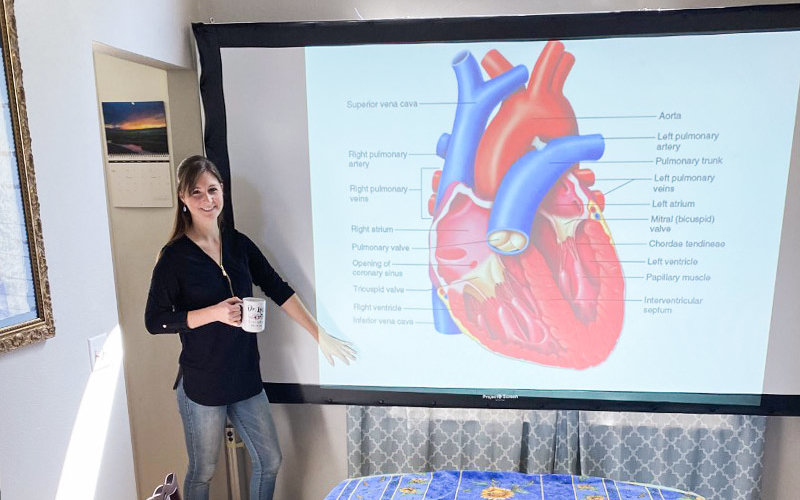
From her groundbreaking work on the novel ways manta rays and whale sharks filter food to the impacts of microplastics in the ocean, Misty Paig-Tran’s research is at a standstill.
Her faculty-student research requires in-person lab time, and with the campus virtually shut down because of the COVID-19 virus restrictions in place at Cal State Fullerton, their work is on hold.
Her research students, however, are pressing on and performing necessary literature searches and preparing research proposals, just as they would have been doing before the novel coronavirus outbreak struck and everyone’s everyday lives halted. She and her students study biomechanics — the blending biology and engineering to answer how marine organisms function and interact with the environment.
“So not all is lost,” Paig-Tran said on the upside. “We’re marching on.”
Paig-Tran, assistant professor of biological science, noted that faculty members were tasked with the almost impossible to transition classes and labs online.
“We were given only a few days’ notice that we would need to develop online learning platforms for in-person courses — including laboratory classes. While this has certainly been a huge challenge, I can attest to the amazing work my colleagues have been doing.
“In just days, both of the labs I coordinate — the human anatomy and anatomy and physiology labs — course instructors had a plan in place and have been actively getting things ready for the students.”
Paig-Tran added that she and her colleagues are working hand-in-hand with online platforms to bring students online material for free.

Marine scientist Misty Paig-Tran teaches human anatomy and physiology — virtually from her home.
“Things are different. There are many imperfections. I am constantly adjusting to meet the students’ needs. But we — the students and the faculty — are working together to make sure they still get as much from the courses as possible,” she said. “My colleagues have been instrumental in providing resources for online courses; we have shared folders with best practices, tools for implementation, constant emails back and forth discussing how to present content effectively.
“I am just incredibly amazed at how so many of my colleagues have risen above and beyond to meet the needs, despite that this undertaking is monumental.”
Paig-Tran, like just about everyone who works at the university, is now managing campus life from her home, with two young children in tow. She works on preparing her course on “Integrated Human Anatomy and Physiology,” and her 5-year-old-daughter Isla, works on writing letters or other tasks assigned by her transitional kindergarten teacher. Her son, Maddox, 3, whose family birthday party was canceled last week due to the urging that people stay away from gatherings in the fight against the new coronavirus, stays active on the digital learning platform ABCmouse.
“It’s a small price to pay for doing our part to flatten the curve,” the scientist added.
Paig-Tran shared that she misses her students and doing research in her lab in Dan Black Hall.
“I worry about their well-being, both physically and emotionally. But my anatomy and physiology students, in particular, have been sending me words of encouragement through this process and helping me to navigate on how best to be flexible during this uncertain time. They have been so wonderful.”
Contact: Debra Cano Ramos, dcanoramos@fullerton.edu